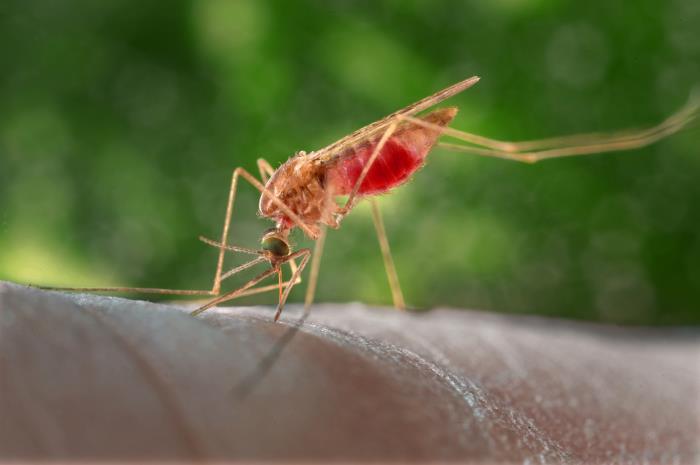Science/Tech
Threshold-Dependent Gene Drives In Wild Populations

Body bent towards the skin surface, this image depicts a lateral view of a feeding female Anopheles atroparvus mosquito. This specimen had landed on a human hand, and was in the process of obtaining its blood meal through its sharp, needle-like labrum, which it had inserted into its human host. Note the reddish color of the labrum, as it was filled with blood, and the bent, retracted labium, which ensheaths the sharp labrum when it's not in use. Also note the red-colored abdomen that had become enlarged due to its blood meal contents. A member of the A. maculipennis species complex, A. atroparvus is a known vector for the parasitic disease malaria. | (Photo : James Gathany)
The BioScience Talks podcast features discussions of topical issues related to the biological sciences.
By altering the heritability of certain traits, gene drive technologies have the potential to spread desired genes through wild populations. In practice, this could lead to mosquito populations that, for example, bear traits making them resistant to the spread of malaria. Despite the huge potential for improving human well-being, concern exists that gene drives could fail in the wild or, perhaps more concerning, spread beyond their intended target populations.
Writing in BioScience, Dr. Greg Backus, a postdoctoral researcher at the University of California, Davis, and Jason Delborne, Associate Professor of Science Policy and Society at North Carolina State University's Genetic Engineering and Society Center, describe a potential solution.
Threshold-dependent gene drives could limit the spread of wild-released gene drives to target populations, increasing control and reducing the risk of unchecked spread. The authors joined us on this episode of BioScience Talks to discuss the potential of these gene drives--and also some of the questions of controllability, spread, and ecological uncertainty that relate to them.








Join the Conversation